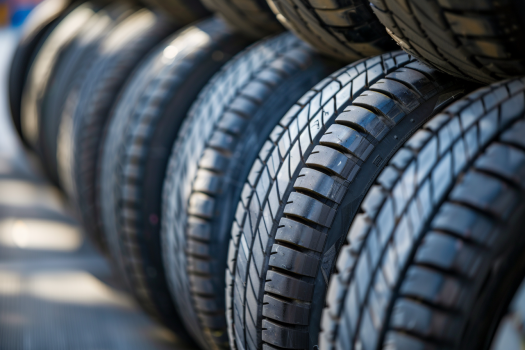Last Updated on April 21, 2024
Understanding the Unique Needs of Trailer Tires
Regarding vehicle maintenance, we often pay close attention to the tires on our cars and trucks. But what about trailer tires? They may not be in the spotlight much, but they are crucial in safely hauling your cargo. Trailer tires are unique in design and purpose, and understanding their specific needs is essential for safety and efficiency.
Why Are Trailer Tires Different?
Trailer tires aren’t your typical tires; they have a special job to do. They’re built differently because they have an important task – carrying heavy loads behind your vehicle. In this blog, we’ll dive into why trailer tires are different and why it is crucial to treat them with care and attention. So, let’s start understanding the unique world of trailer tires.
- Load-Carrying Capacity: Trailer tires are engineered to bear heavy loads, considering the weight of the trailer and its contents. This focus on load capacity means they have a different load range than standard tires.
- Sidewall Construction: Trailer tires often have stiffer sidewalls to support their load better. This feature helps prevent sidewall flexing, which can lead to overheating and tire failure.
- Durability: Given that trailer tires spend a lot of time stationary between trips, they must withstand prolonged periods of inactivity. They are designed to resist flat-spotting and maintain their shape over time.

Tips for Trailer Tire Maintenance
Maintaining trailer tires might not be the first thing that comes to mind when considering vehicle upkeep, but it’s vital to ensuring safe and smooth towing experiences. Trailer tires play a unique role in hauling heavy loads, and as such, they require special attention and care. In this section, we’ll share some essential tips for trailer tire maintenance so you can keep your trailer rolling smoothly down the road.
- Proper Inflation: Always maintain the recommended tire pressure for your trailer tires. Underinflation can cause excessive heat buildup and tire damage.
- Regular Inspection: Check your trailer tires for signs of wear, cracking, or damage before each trip. Pay close attention to the tread depth and sidewalls.
- Balancing: Ensure that your trailer tires are balanced correctly to prevent uneven wear, which can affect towing stability.
- Rotation: While you may not rotate trailer tires like you would with your vehicle, periodically switching their positions can help promote even wear.
- Load Distribution: Properly distribute the weight on your trailer to avoid overloading specific tires. Uneven weight distribution can lead to tire failure.
When to Replace Trailer Tires
Trailer tires, like all tires, have a limited lifespan. Usage frequency, load capacity, and maintenance affect how long they last. If you notice significant wear or sidewall damage, or if your trailer tires are over six years old, it’s time to consider replacement.
Maintaining Your Trailer Tires: Your Part for Safety
As the weekend approaches, it’s time to roll up your sleeves and perform some essential tire maintenance tasks. Following the advice from our recent posts, you’re likely planning to check your vehicle’s tire pressure, test its alignment, rotate the tires, and inspect the tread. But don’t forget about your trailer tires! These tires differ from the ones on your vehicle and require unique attention to ensure safety and longevity.
- Understanding the Difference
Trailer tires aren’t your everyday tires; they’re engineered with a specific purpose – carrying heavy loads. This difference in design means that you need to approach their maintenance and safety differently.
- Regular Replacement
Unlike the tires on your car or truck, trailer tires should be replaced every 3-4 years, regardless of their tread depth or appearance. Trailer tire life cycles are primarily limited by time and duty cycles, so waiting for them to wear out is not a safe strategy. Regularly inspect for defects, bulges, and punctures, and replace tires showing wear or damage.
- Inspect for Defects
Inspect your trailer tires closely for defects to ensure they are in top condition. Look out for any bulges, cuts, or punctures that might compromise their integrity. Regular inspections are essential to catch potential issues early.
- The Penny Test for Tread Depth
Maintaining adequate tread depth is crucial for tire performance and safety. Using the penny test, you can quickly check your trailer tires’ tread depth. Place a penny into the tire’s tread with Lincoln’s head facing down. If you can see the top of Lincoln’s head, it’s time to replace the tire.

- The Underinflation Risk
One of the most significant contributors to trailer tire failure is underinflation. Keep a close eye on your trailer tire’s pressure and ensure they’re inflated to the maximum inflation level specified on its sidewall. Proper inflation is crucial for carrying heavy loads safely.
- Give Your Trailer Tires the Same Care
As you embark on your weekend tire maintenance routine, remember to give your trailer tires the same care and attention as your vehicle’s tires. Following these tips and performing regular checks will ensure safe and smooth travels with your trailer in tow. Your efforts will pay off in peace of mind and extended tire life.
Conclusion
In conclusion, don’t overlook the importance of trailer tires. They may have different requirements compared to your vehicle’s tires, but they play a vital role in the safety of your travels. Whether you need replacements or want to upgrade to high-quality trailer tires, Tire Easy has you covered.
Browse our selection today and ensure your trailer is ready for the road ahead.
Upgrade Your Trailer Tires with Tire Easy
Invest in the longevity and safety of your trailer by choosing the right trailer tires.
Explore our wide range of options at Tire Easy and experience worry-free towing.
Get started today and give your trailer the love it deserves!
FAQs
What is the best type of tire for a trailer?
Trailer tires come in various types, including bias-ply and radial. The choice depends on your specific trailer and usage. Radial trailer tires are often recommended for durability and performance, especially for highway use.
What kind of tires do trailers use?
Trailers typically use specialized trailer tires designed to carry heavy loads. These tires have reinforced sidewalls and are constructed to withstand the unique demands of towing.
What is different about trailer tires?
Trailer tires are different from regular vehicle tires in their construction and purpose. They are designed to carry heavy loads and have stiffer sidewalls to prevent sway and improve towing stability.
What size is a trailer tire?
Trailer tire sizes vary depending on the type and size of the trailer. Common sizes include 13-inch, 14-inch, and 15-inch tires, but larger trailers may require larger tire sizes for optimal performance.









